

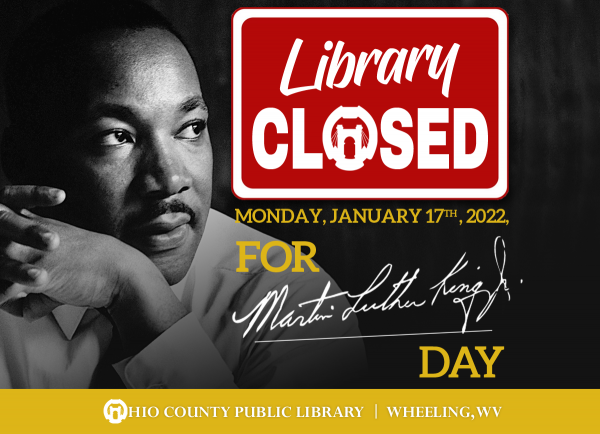
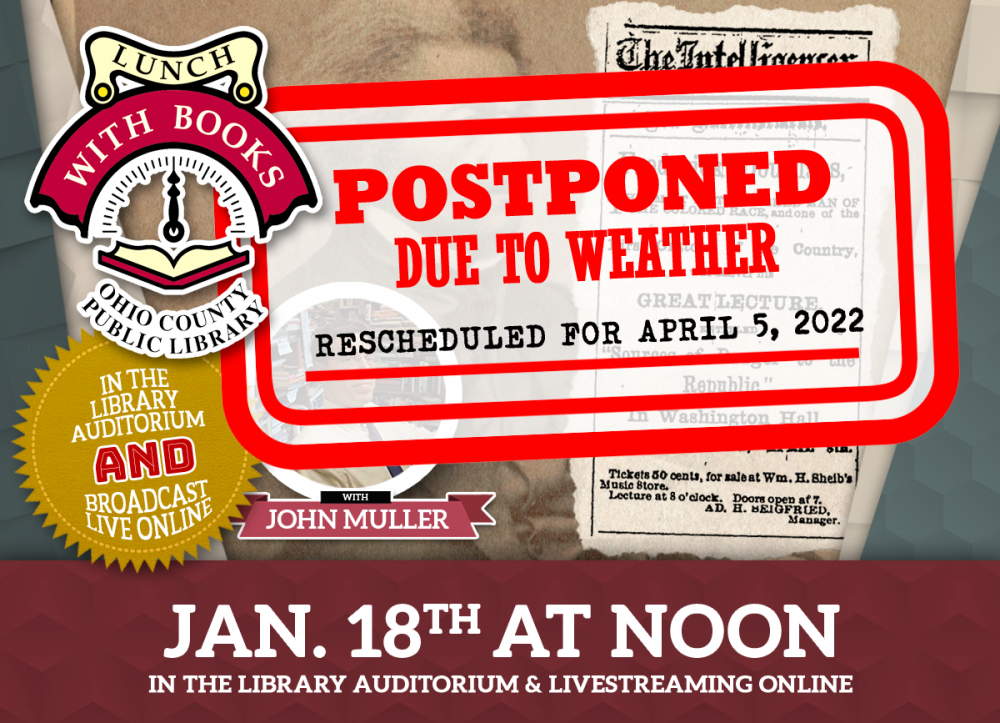 PLEASE NOTE: Due to the winter storm forecast and the fact that our guest must travel from Washington, D.C., we have postponed the Lunch With Books program scheduled for Tuesday, January 18th — The Lost History of Frederick Douglass in Wheeling with John Muller. This program has been rescheduled for April 5, 2022.
PLEASE NOTE: Due to the winter storm forecast and the fact that our guest must travel from Washington, D.C., we have postponed the Lunch With Books program scheduled for Tuesday, January 18th — The Lost History of Frederick Douglass in Wheeling with John Muller. This program has been rescheduled for April 5, 2022.
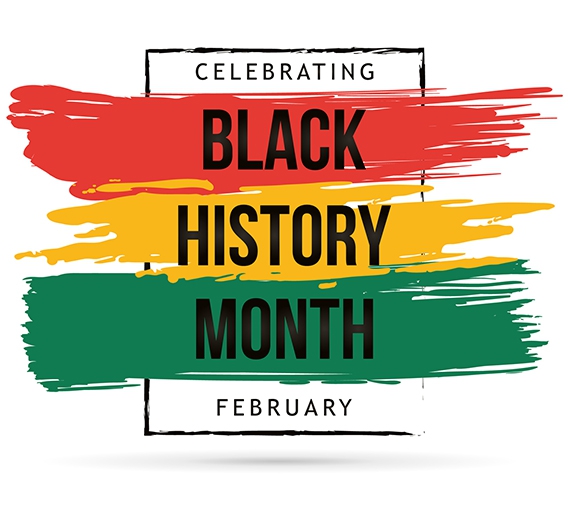 The Ohio County Public Library in Wheeling is offering a full slate of programs celebrating Black History Month in February, 2022. All of the programs are part of the library's adult series, "Lunch With Books," and will be offered each Tuesday of the month at noon. "I strongly believe this is the finest and most complete series of Black History Month programs we've ever hosted," said programming director Sean Duffy.
The Ohio County Public Library in Wheeling is offering a full slate of programs celebrating Black History Month in February, 2022. All of the programs are part of the library's adult series, "Lunch With Books," and will be offered each Tuesday of the month at noon. "I strongly believe this is the finest and most complete series of Black History Month programs we've ever hosted," said programming director Sean Duffy.
Lunch with Books is the library's flagship program for adult patrons. Patrons are invited to bring a bag lunch and enjoy presentations by authors, poets, historians, musicians, and a variety of other people. Complimentary beverages are provided. Though the Library is now fully opened and our in-person programming has returned, each program is offered as a live streamed broadcast for those who are unable to attend programs at the Library.
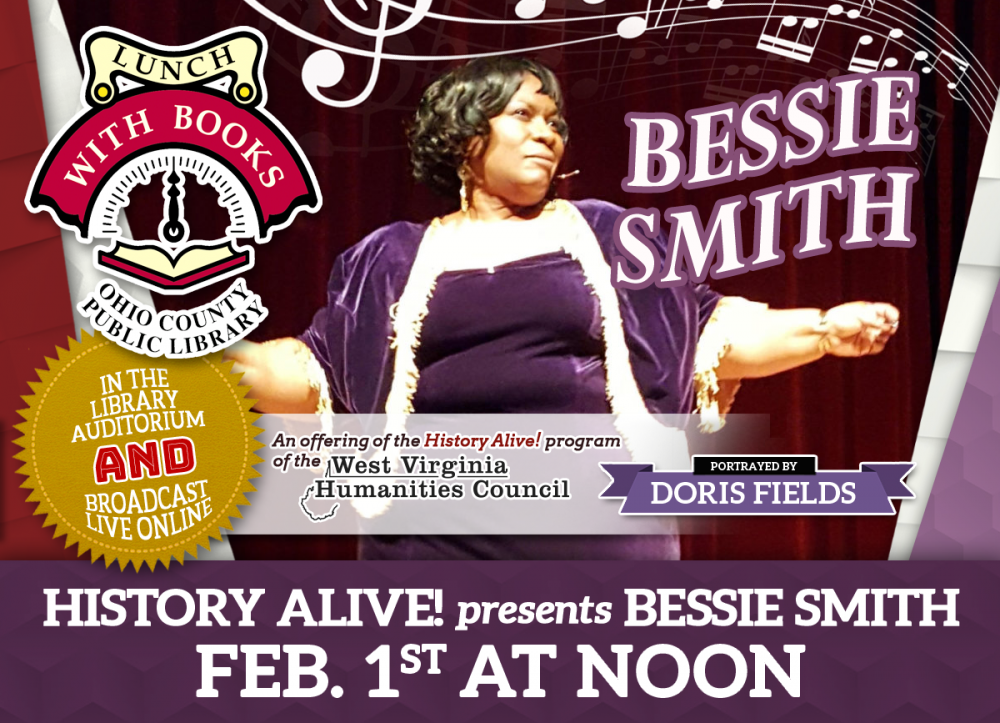 As the most popular female blues singer of the 1920s and 1930s, Bessie Smith was the highest-paid Black performer of her day. She was known as the “Empress of the Blues” by virtue of her forceful vocal delivery and command of the genre. In addition, she was an all-around entertainer who danced, acted and performed comedy routines with her touring company. She was a staple of the “Chitlin’ Circuit” and throughout the Jim Crow South, and many of her tunes have been covered by various artists through the decades. Smith made an infamous visit to Wheeling in 1936.
As the most popular female blues singer of the 1920s and 1930s, Bessie Smith was the highest-paid Black performer of her day. She was known as the “Empress of the Blues” by virtue of her forceful vocal delivery and command of the genre. In addition, she was an all-around entertainer who danced, acted and performed comedy routines with her touring company. She was a staple of the “Chitlin’ Circuit” and throughout the Jim Crow South, and many of her tunes have been covered by various artists through the decades. Smith made an infamous visit to Wheeling in 1936.
She is portrayed by Doris Fields, aka Lady D, known as “West Virginia’s First Lady of Soul,” an R&B, soul, and blues musician and songwriter living in Beckley.
Presented through the West Virginia Humanities Council's History Alive, a program of first-person portrayals of historical figures by presenters who have conducted scholarly research on their character.
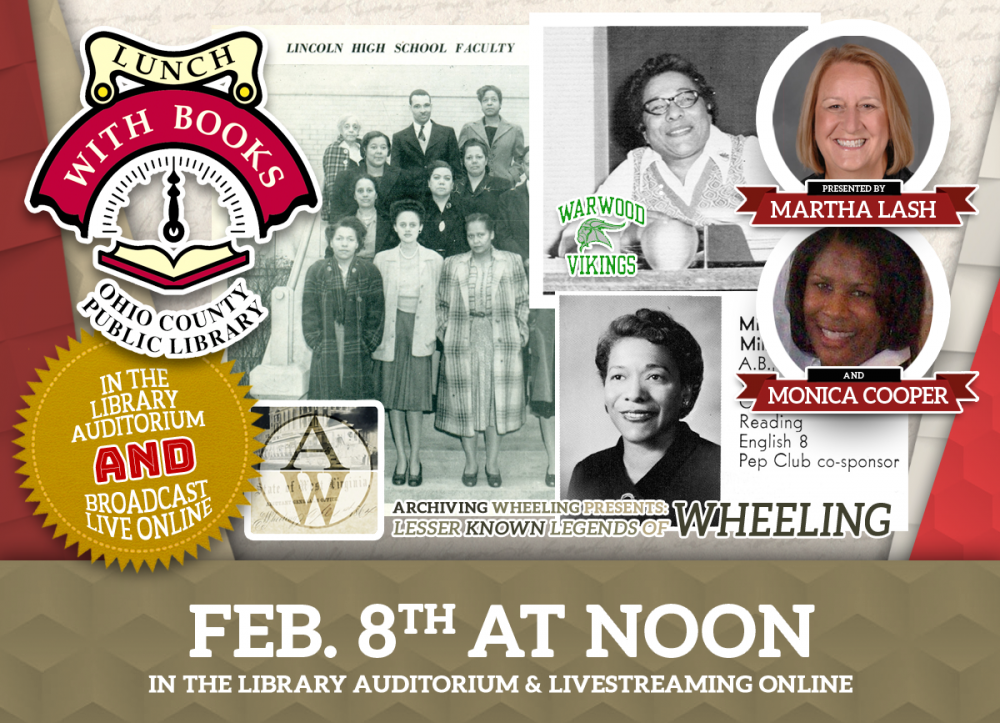 Miss Eileen Miller (1921-2010), an African American teacher from Wheeling, taught here before, during, and after school desegregation following the Brown v. Board of Education decision in 1954. Kent State University professor Dr. Martha Lash and Monica Ratcliffe Cooper of Pittsburgh will share Miss Miller’s story which stands as an exemplar of the desegregation experience and as such deserves a place in the history as a talented educator who gracefully and powerfully managed her teaching career through many changes.
Miss Eileen Miller (1921-2010), an African American teacher from Wheeling, taught here before, during, and after school desegregation following the Brown v. Board of Education decision in 1954. Kent State University professor Dr. Martha Lash and Monica Ratcliffe Cooper of Pittsburgh will share Miss Miller’s story which stands as an exemplar of the desegregation experience and as such deserves a place in the history as a talented educator who gracefully and powerfully managed her teaching career through many changes.
Dr. Lash shares, "A master’s degree student posed the following question to our Professional Development in Teaching class: 'Did anyone in class have an African American teacher during any of their PK-12 years?' Only two raised their hands: the African American female student posing the question, and I, a middle-aged, female, Caucasian professor. The class discussion revolved around the topic of the relatively few teachers of color who grace our public schools. It also left me with lingering questions of how and why an educated and talented African American teacher had taught me in eighth grade in my predominantly European American community on the northern edge of Appalachia during my school years in the 1960s and 1970s."
PRESENTER BIO: Dr. Martha Lash received a B.A. in Sociology, West Liberty State College, WV, a Masters of Ed in Curriculum Studies, Early Childhood emphasis, Indiana University-Bloomington, 1996, and a Ph.D in Curriculum Studies, Early Childhood emphasis, Indiana University-Bloomington, 2004. A professor at Kent State University since 2003, her areas of specialty are Early Childhood Teacher Education and Curriculum Studies.
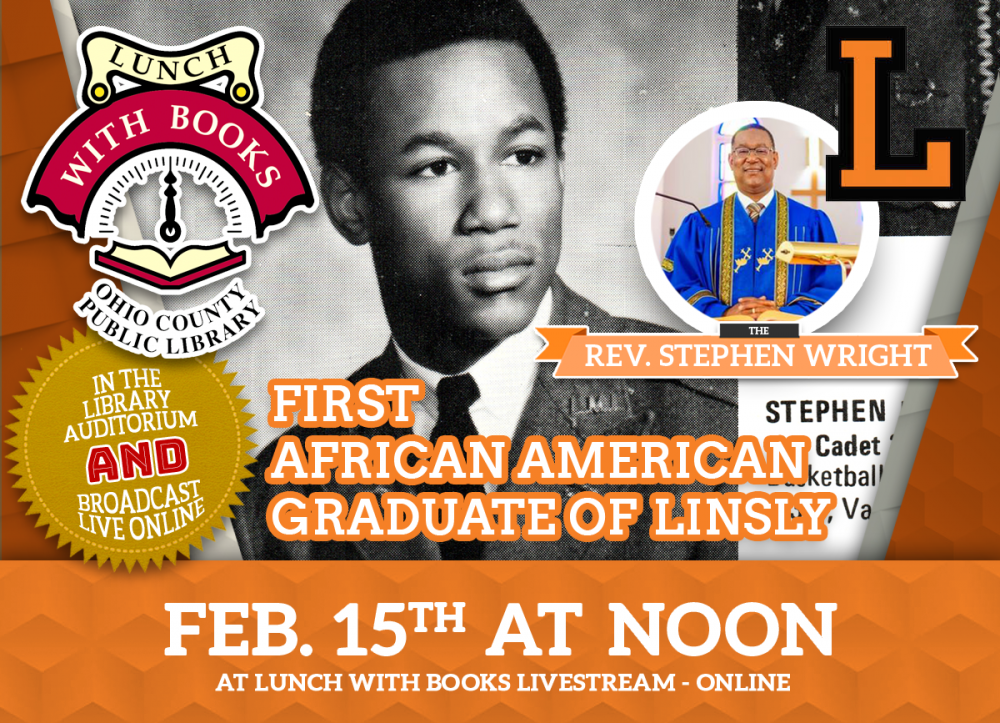 In observation of Black History Month, Rev. Stephen Wright, the first African American to attend and graduate from the Linsly Military Institute, class of 1972, will discuss his experiences as a student. Now a resident of Maryland, Rev. Wright will be joined at the event by other early African American students of Linsly, including William Gummer, Dorian Lee, Jeff Potts, and Scott Allyn Thomas.
In observation of Black History Month, Rev. Stephen Wright, the first African American to attend and graduate from the Linsly Military Institute, class of 1972, will discuss his experiences as a student. Now a resident of Maryland, Rev. Wright will be joined at the event by other early African American students of Linsly, including William Gummer, Dorian Lee, Jeff Potts, and Scott Allyn Thomas.
Founded in 1814, the Lancastrian Academy opened at 13th and Chapline Streets in Wheeling as its founder, Noah Linsly, made provision in his will for the creation of a school. The second building at 15th and Eoff Streets was loaned to the new state of West Virginia for its capitol from 1863 to 1870. By 1877 the academy became a boys' school known as Linsly Military Institute, adopting the dress and the discipline of a military school. Beginning in 1927, Linsly moved to its current location at Thedah Place. The military structure ended in 1978 and The Linsly School became coed in 1987.
Presenter Bio: The Rev. Stephen Wright attended Linsly Military Institute from 1968 to 1972 and worked as a steelworker with Wheeling-Pittsburgh Steel Corp. from 1973 to 1985. In 1969, he was elected the first vice president of the West Virginia Baptist State Youth Convention. He has a B.A. from Washington Baptist Seminary and since December of 1998, has been the pastor at First Baptist Church of College Park, one of the oldest African-American congregations in Prince George’s County, Maryland.
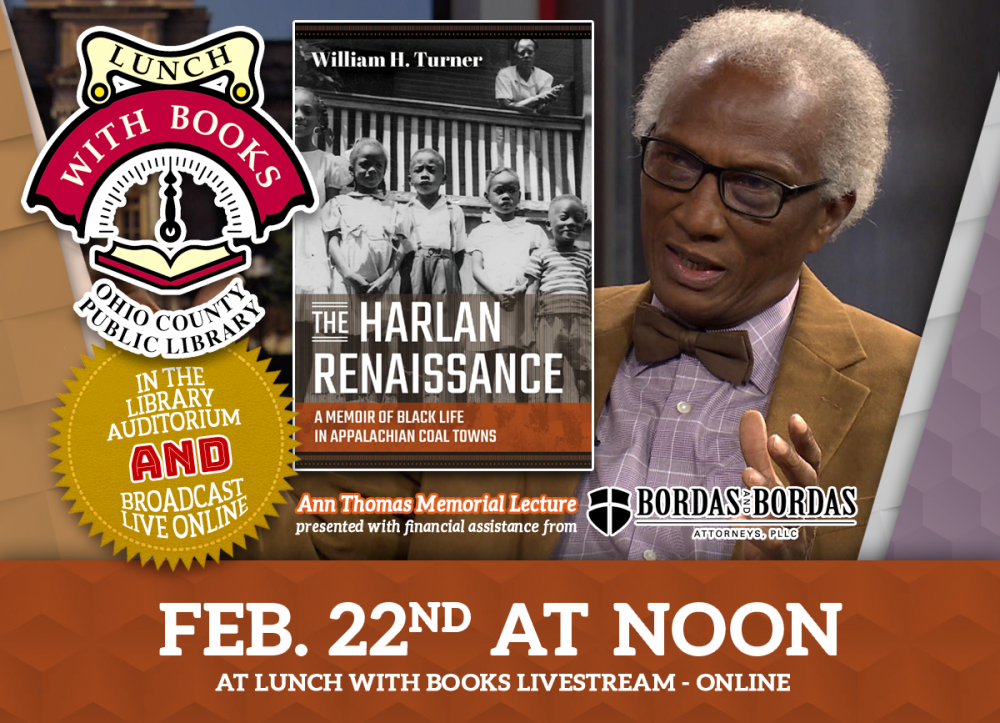 The third annual Ann Thomas Memorial Lecture at Lunch With Books at the Ohio County Public Library will take place on Tuesday, February 22, 2022 at noon, and will feature Dr. William H. Turner discussing his new books from WVU Press, The Harlan Renaissance.
The third annual Ann Thomas Memorial Lecture at Lunch With Books at the Ohio County Public Library will take place on Tuesday, February 22, 2022 at noon, and will feature Dr. William H. Turner discussing his new books from WVU Press, The Harlan Renaissance.
The Harlan Renaissance by Dr. William H. Turner is an intimate remembrance of kinship and community in eastern Kentucky’s coal towns written by one of the luminaries of Appalachian studies, William Turner. Turner reconstructs Black life in the company towns in and around Harlan County during coal’s final postwar boom years, which built toward an enduring bust as the children of Black miners, like the author, left the region in search of better opportunities.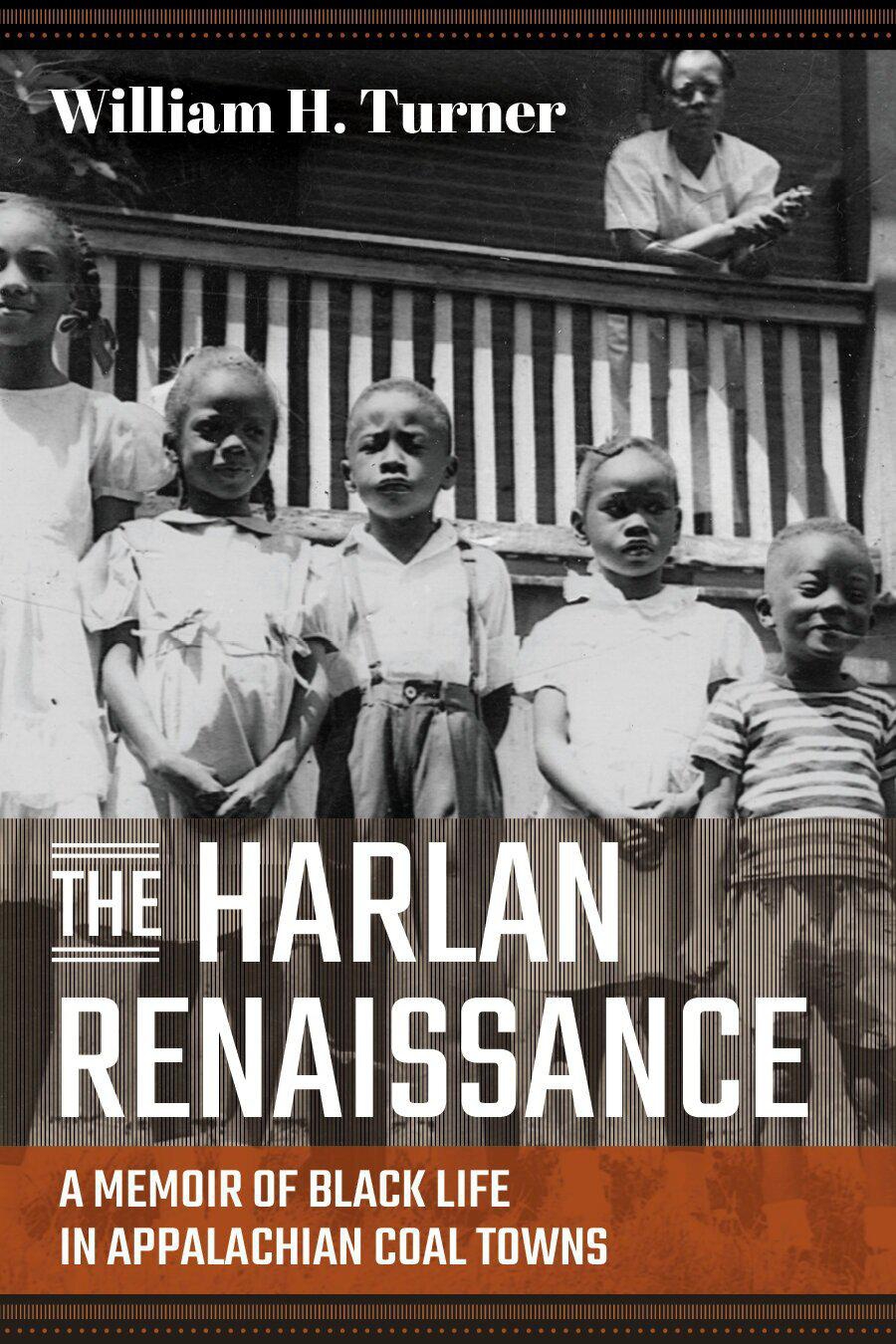 The Harlan Renaissance invites readers into what might be an unfamiliar Appalachia: one studded by large and vibrant Black communities, where families took the pulse of the nation through magazines like Jet and Ebony and through the news that traveled within Black churches, schools, and restaurants. Difficult choices for the future were made as parents considered the unpredictable nature of Appalachia’s economic realities alongside the unpredictable nature of a national movement toward civil rights.
The Harlan Renaissance invites readers into what might be an unfamiliar Appalachia: one studded by large and vibrant Black communities, where families took the pulse of the nation through magazines like Jet and Ebony and through the news that traveled within Black churches, schools, and restaurants. Difficult choices for the future were made as parents considered the unpredictable nature of Appalachia’s economic realities alongside the unpredictable nature of a national movement toward civil rights.
Unfolding through layers of sociological insight and oral history, The Harlan Renaissance centers the sympathetic perspectives and critical eye of a master narrator of Black life.
SPEAKER BIO
William H. Turner, PhD, the fifth of ten children, was born in 1946 in the coal town of Lynch, Kentucky, in Harlan County. His grandfathers, father, four uncles and older brother were coal miners.
Mr. Turner has spent his professional career studying and working on behalf of marginalized communities, helping them create opportunities in the larger world while not abandoning their important cultural ties. He is best-known for his ground-breaking research on African-American communities in Appalachia, but Turner’s work is universal. As an academic and a consultant, he has studied economic systems and social structures in the urban South and burgeoning Latino communities in the Southwest. What he strives for on behalf of his clients and their communities is what we all want: prosperity, understanding and respect. Website: https://whturnerphd.com
Watch Bill Turner with W. Kamau Bell, host of United Shades of America
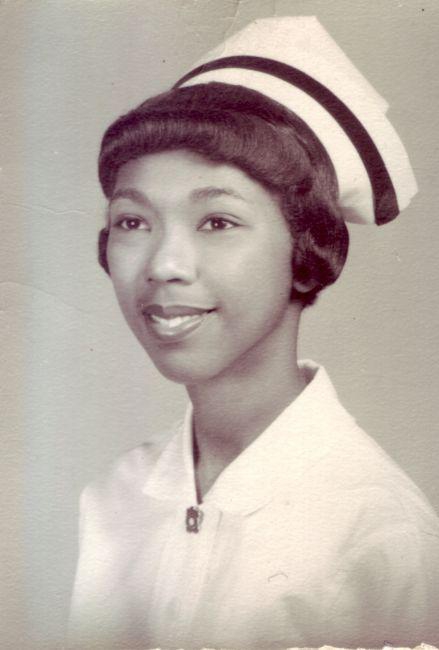 Ann Thomas was Wheeling's first African American Registered Nurse. She migrated with her mother to Wheeling from North Carolina as a child. Ann grew up during Wheeling's Jim Crow era and became one of the first African American students to leave segregated Lincoln School for Wheeling High School after Brown vs Board was decided in 1954. She thereafter became Wheeling's first African American Nurse. Her husband, Clyde, was a great football player for the semi-pro Wheeling Ironmen and the only African American elected to Wheeling's City Council in the modern era.
Ann Thomas was Wheeling's first African American Registered Nurse. She migrated with her mother to Wheeling from North Carolina as a child. Ann grew up during Wheeling's Jim Crow era and became one of the first African American students to leave segregated Lincoln School for Wheeling High School after Brown vs Board was decided in 1954. She thereafter became Wheeling's first African American Nurse. Her husband, Clyde, was a great football player for the semi-pro Wheeling Ironmen and the only African American elected to Wheeling's City Council in the modern era.
Ann was a wonderful, optimistic, courageous, and genuinely kind woman, and a dedicated patron of the library and library programs. After she passed on February 22, 2019 (having bravely battled cancer and endured suffering for many years), we decided to create an annual memorial lecture series at the library in her honor.
Our first speaker was Dr. Joe Trotter of Carnegie Mellon, who talked about his book, Workers on Arrival: Black Labor in the Making of America on Feb. 18, 2020.
— See video of Dr. Trotter's talk.
Our second speaker, on Feb. 23, 2021, was Crystal Wilkinson, the award-winning author of The Birds of Opulence (winner of the 2016 Ernest J. Gaines Prize for Literary Excellence) and Associate Professor of English in the MFA in Creative Writing Program at the University of Kentucky.
— See video of Crystal's talk.
~ Visit OCPL's Ann Thomas "Memories of Wheeling" page featuring videos of Ann's memories
~ Read OCPL's Biography of Ann Prince Thomas
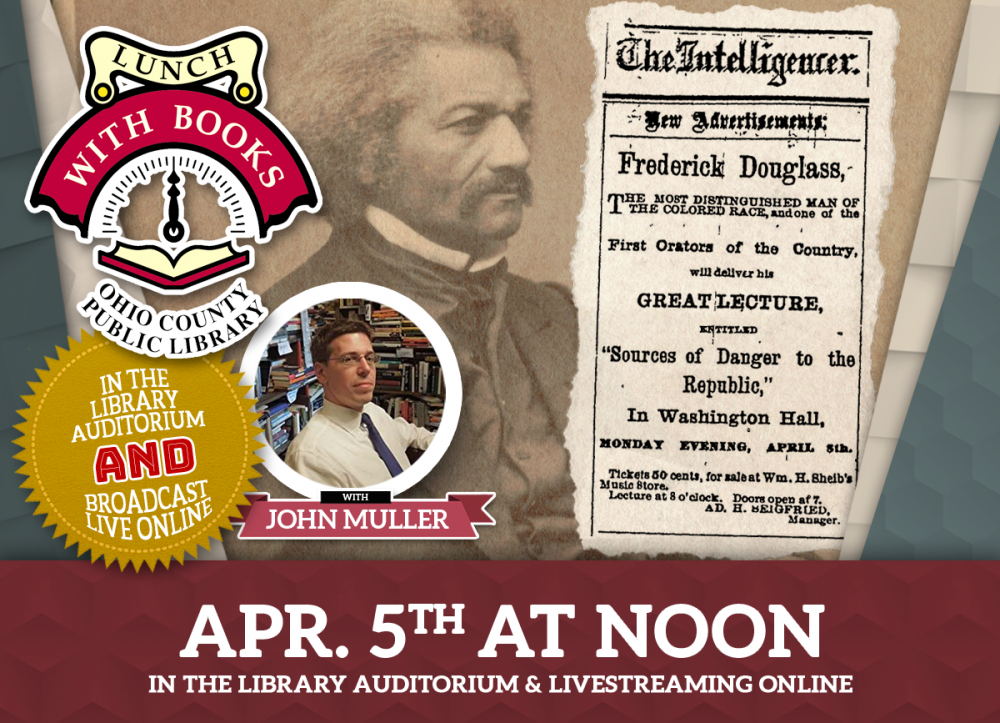 Internationally known, in life and afterlife, on both sides of the Atlantic Ocean as an orator, abolitionist, editor, suffragist and American reformist, the history and placement of Frederick Douglass in the field of Appalachian Studies has not been considered and recognized until now.
Internationally known, in life and afterlife, on both sides of the Atlantic Ocean as an orator, abolitionist, editor, suffragist and American reformist, the history and placement of Frederick Douglass in the field of Appalachian Studies has not been considered and recognized until now.
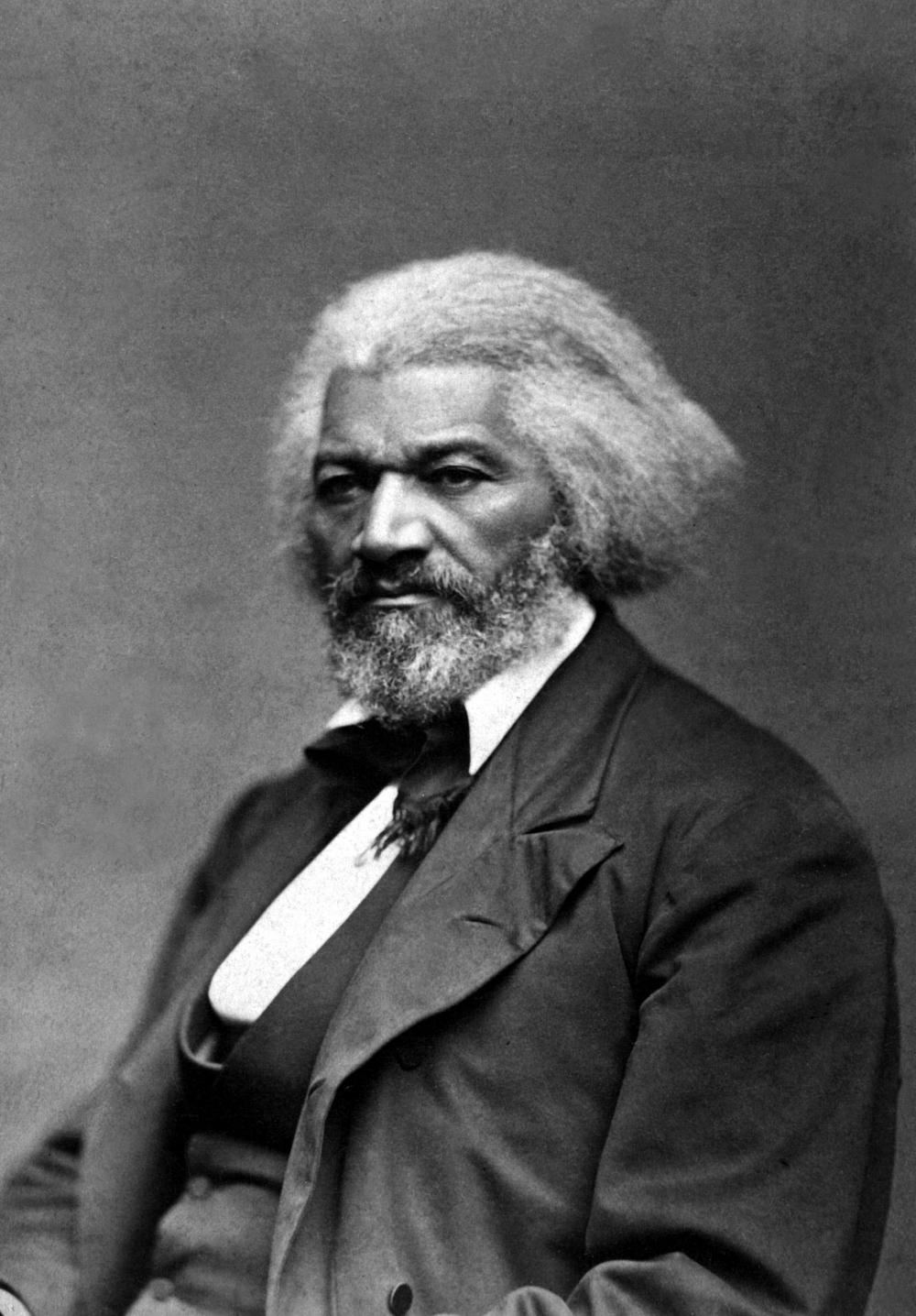 Following the Civil War, Frederick Douglass made notable visits to Wheeling, West Virginia in 1867 and 1884, speaking first at the original Washington Hall at the bequest of a literary society and nearly two decades later at the Opera House, which still stands today at 12th and Market Street in downtown Wheeling, as part of an Emancipation celebration.
Following the Civil War, Frederick Douglass made notable visits to Wheeling, West Virginia in 1867 and 1884, speaking first at the original Washington Hall at the bequest of a literary society and nearly two decades later at the Opera House, which still stands today at 12th and Market Street in downtown Wheeling, as part of an Emancipation celebration.
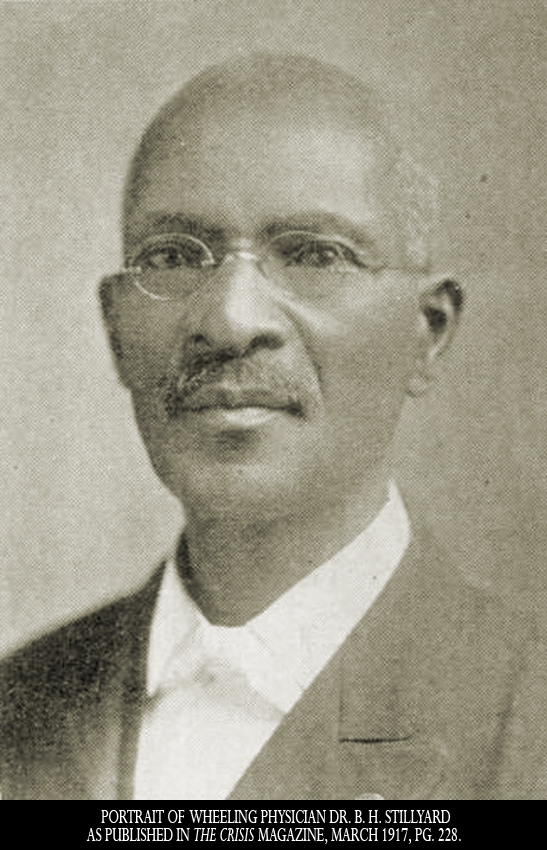 The Lost History of Frederick Douglass in Wheeling, West Virginia will focus on the relationship and associations Douglass had with several notable Wheeling citizens, including newspaper publisher, political insider and a leader of West Virginia’s statehood movement Archibald W. Campbell and Dr. Boswell Henson Stillyard, the first Black member of Wheeling’s City Council. In February 2021 Dr. Stillyard was profiled by Archiving Wheeling in an article researched by Local History Specialist at the Ohio County Public Library Erin Rothenbuehler
The Lost History of Frederick Douglass in Wheeling, West Virginia will focus on the relationship and associations Douglass had with several notable Wheeling citizens, including newspaper publisher, political insider and a leader of West Virginia’s statehood movement Archibald W. Campbell and Dr. Boswell Henson Stillyard, the first Black member of Wheeling’s City Council. In February 2021 Dr. Stillyard was profiled by Archiving Wheeling in an article researched by Local History Specialist at the Ohio County Public Library Erin Rothenbuehler
The sojourns of Frederick Douglass in Wheeling are part of a larger portfolio of more than a half-dozen visits he made across West Virginia from the Eastern Panhandle to the Northern Panhandle to the Kanawha River Valley. Traveling extensively on local railroads, Douglass remained connected to the mountain state as a trustee of Storer College, West Virginia’s first Historically Black College & University, and as an associate of notable West Virginians Governor Arthur I. Boreman, West Virginia’s first Black attorney J. R. Clifford and others.
The Lost History of Frederick Douglass in Wheeling, West Virginia will be presented for the first time at the Ohio County Public Library in Wheeling by John Muller, author of Frederick Douglass in Washington, D.C.: The Lion of Anacostia (2012) and Mark Twain in Washington, D.C.: The Adventures of a Capital Correspondent (2013), and a co-founder of Lost History Associates.
© Copyright 2026 Ohio County Public Library. All Rights Reserved. Website design by TSG. Powered by SmartSite.biz.